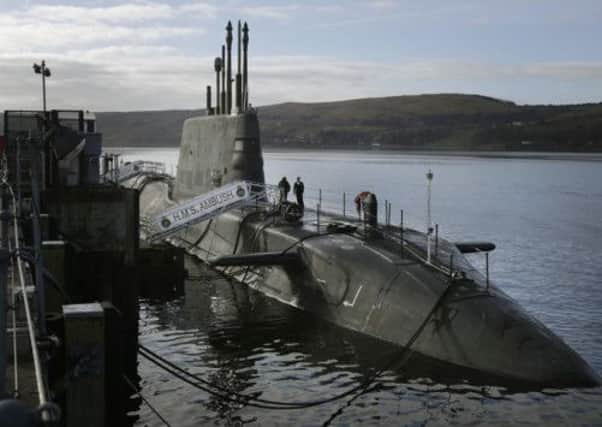Scottish independence: ‘Decade of Trident’ claim


The SNP government is committed to removing nuclear weapons from Scotland if the country opts to leave the UK in next year’s independence referendum.
But it also wants to join Nato and was recently warned by bosses at the defence alliance that Scotland would be barred if it was embroiled in a dispute with London over getting rid of Trident.
Advertisement
Hide AdAdvertisement
Hide AdA Dublin-based think tank, the Institute of International and European Affairs, has said that allowing a foreign military base to remain in the medium term is “not incompatible” with independence.
A report written by Colonel Dorcha Lee of the Irish Army says that the timeframe for Trident’s withdrawal would have to take UK strategic interests into account.
He adds: “A ten-year deadline would allow time for the UK to reorganise its nuclear deterrent outside Scotland.
“The future of Faslane should be part of a package covering all aspects of Scottish UK defence issues.”
Colonel Lee also argues that Scotland could spend far less on defence as an independent country than it does as part of the UK, possibly half the £3.3 billion that it contributes annually.
The set-up costs of the Scottish forces would be difficult to estimate but high – possibly up to £10bn.
The decision to change policy and join Nato at the SNP conference last year split the party and led to the resignation of two MSPs.
Angus Robertson, the SNP’s defence spokesman, insisted an independent Scotland would maintain Nato membership with the condition that the country does not host nuclear weapons.
He said: “It will negotiate the speediest and safe transition of the nuclear fleet from Faslane, which will be replaced by conventional naval forces.”